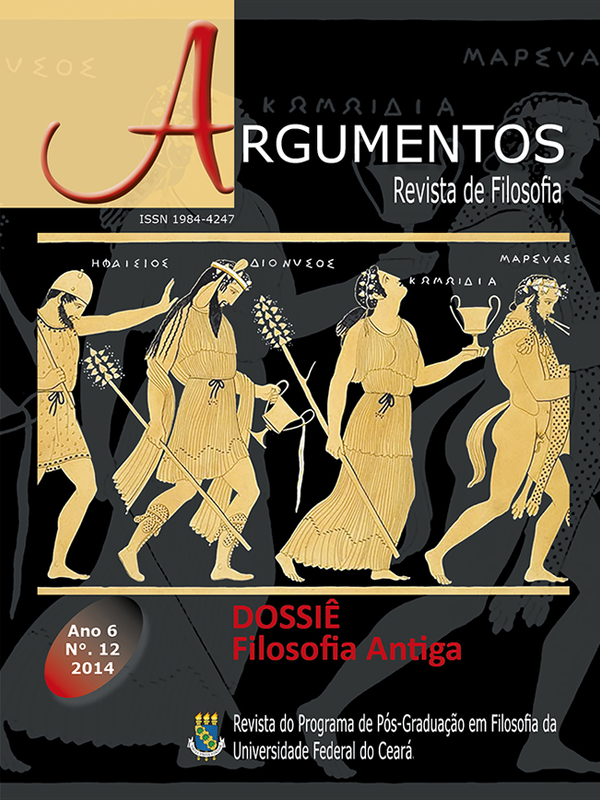Laughter and madness in Plato and Nietzsche: a provocation insinuating approximation
Keywords:
Nietzsche. Plato. Antiplatonism.Abstract
This paper presents the beginning of a research that intends to identify not only the well known differences between Plato and Nietzsche, but also perhaps unusual approaches between them. It’s impossible to deny Nietzsche’s antiplatonism. However, I suggest the hypothesis that these two thinkers, that are at the two ends of occidental metaphysics, have the same soul, I mean, they practice an extremely vigorous criticism in relation to their time, motivated by the same question: overcome the mediocrity on behalf of a noble and free man, besides being both excellent writers. It’s sure that the practice of this criticism was done with completely contrary instruments. While Plato had the necessity to criticize the poets, Nietzsche had the necessity to criticize the Platonism. While one of them asserts the intellect and the “beyond”, the other asserts the body and the Earth. The effort of this research is to show that although there are such radical differences, it’s possible to understand that, instead of opponents, Nietzsche and Plato are very near, considering their critic impulse.Downloads
Published
Issue
Section
License
Argumentos magazine is licensed under an International Creative Commons Attribution License.
The Magazine uses CC BY inclusion
1) The authors retain the copyright granted to the magazine or the right to initial publication, with the work regularly licensed under the Creative Commons Attribution, which allows the sharing of the work with acknowledgment of authorship and initial publication in this magazine.
2) The authors are authorized to contract additional applicable contracts, for non-exclusive distribution of the version of the work published in this journal (for example, publication in the institutional repository or as a chapter of the book), recognition of authorship and initial publication in this journal.
3) Authors are authorized and encourage to publish and distribute their work online (for example, in institutional repositories or on their personal pages) at any time before or during the editorial process, as they can generate productive changes, as well as increase the impact and reference of published work.




.jpg)










._._3.png)
1.jpg)
._._._.png)
